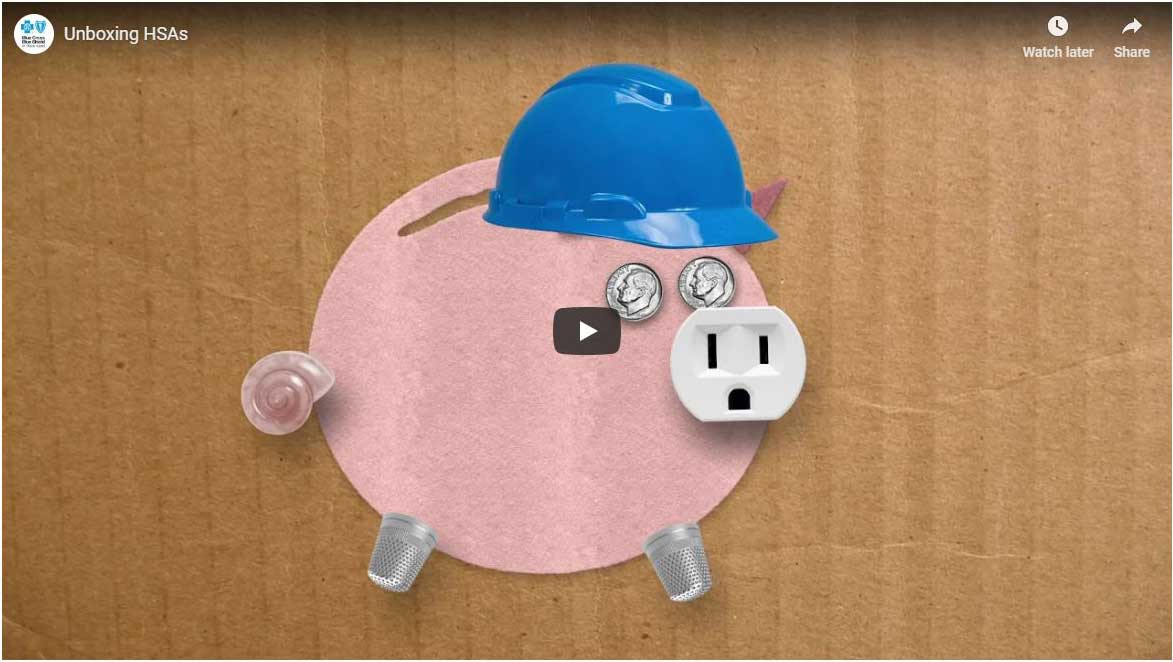Use savings accounts to your advantage
Health savings account (HSA)
A health savings account (HSA) allows you to save pre-tax dollars for qualified medical expenses. Think of it like a retirement account for medical expenses. You can contribute money to your account and spend it on immediate expenses. Or you can keep saving and investing your money and use it later in life. It's your money. It’s your choice.
Here’s what you get with an HSA
- More spending power. Since you’re putting in pre-tax dollars, it’s like a built-in discount when you use it.
- Tax savings. Money you contribute through payroll deductions is pre-tax. Your account earns interest tax free. And money you withdraw from your account is not taxed when you use it to pay for qualified medical expenses.
- Flexibility. HSA funds roll over from one year to the next, and the balance can earn interest.
- Portability. Your HSA remains yours whether you change jobs or retire.
- Convenience. Manage your HSA online, including paying bills, viewing transactions, and scheduling contributions.
An HSA is set up through your employer and paired with an HSA-qualified health plan.
See the savings for yourself
Simple calculators show you how much you can save on taxes when you contribute to your HSA.
Tax savings example*
For a married couple in Rhode Island filing a joint tax return.
| Household Income: | $75,000 |
| Pre-tax HSA Contribution: | $3,000 |
| Tax savings: | $491 |
*This example is for illustrative purposes only and does not represent actual tax impact.
This summary is for informational purposes only, and is not intended to provide, and should not be relied on for, tax, legal or accounting advice. You should consult your own tax, legal and accounting advisors before engaging in any transaction. HSAs are not insurance. HSAs are individual accounts, and are subject to eligibility and restrictions, including but not limited to, restrictions on distributions for qualified medical expenses set forth in section 213(d) of the Internal Revenue Code.
Flexible spending account (FSA)
A flexible spending account (FSA) is set up through your employer and can be used to pay for many of your out-of-pocket medical expenses with tax-free dollars. These expenses include copays, deductibles, qualified prescription drugs, insulin, and medical devices.
FSAs also can be set up for childcare, parking, and commuting costs.
While your employer sets up the FSA and sets a limit on how much you can contribute to the account, you decide how much of your pre-tax wages you want put into the FSA.
There is no carry-over of FSA funds. This typically means that FSA funds you don’t spend by the end of the plan year can’t be used for expenses in the next year.
Health reimbursement account (HRA)
A health reimbursement account is funded by your employer. You can be reimbursed from that account, tax-free, for qualified medical expenses up to a fixed dollar amount per year. Unlike flexible spending accounts (FSAs), unused amounts in an HRA can be rolled over for use in subsequent years if your employer allows that.
For more information about any of these arrangements, please talk to your employer.



